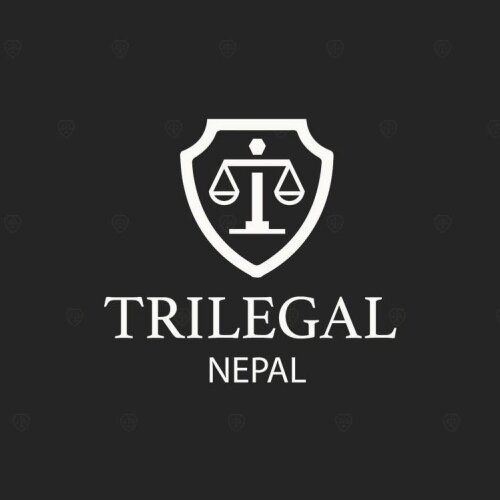Best Public-Private Partnerships (PPP) Lawyers in Nepal
Share your needs with us, get contacted by law firms.
Free. Takes 2 min.
Or refine your search by selecting a city:
List of the best lawyers in Nepal
About Public-Private Partnerships (PPP) Law in Nepal
Public-Private Partnerships (PPP) in Nepal refer to formal collaborations between the government and private sector entities for the development, financing, construction, operation, and maintenance of public infrastructure and services. PPP projects in Nepal are commonly used for the construction of roads, airports, power plants, hospitals, and schools, among others. The PPP legal framework in Nepal is designed to encourage private investment in public services, ensure efficient project execution, and share risks and rewards between the public and private partners in a transparent manner. PPP arrangements have become increasingly important as Nepal seeks to bridge its infrastructure gap and boost economic development.
Why You May Need a Lawyer
Engaging in a PPP project in Nepal often involves navigating a complex legal, regulatory, and contractual environment. Some common situations where legal assistance is essential include:
- Understanding the eligibility criteria and bidding process for PPP projects
- Negotiating and drafting robust PPP agreements
- Ensuring compliance with relevant laws, policies, and government requirements
- Handling disputes or disagreements during different phases of the project
- Assessing and allocating risks and responsibilities between parties
- Managing land acquisition, environmental, and labor issues
- Interfacing with government bodies and dealing with permits or approvals
- Facilitating project finance arrangements and security interests
- Understanding tax implications and incentives
Local Laws Overview
The key legal framework governing PPPs in Nepal is the Public-Private Partnership and Investment Act, 2075 (2019), commonly referred to as the PPP Act. This law provides comprehensive guidelines for the identification, implementation, operation, transfer, and regulation of PPP projects in Nepal. Some of the crucial provisions include:
- Defining eligible sectors, such as transport, energy, urban infrastructure, tourism, health, and education for PPP projects
- Outlining transparent bidding and procurement procedures
- Describing types of PPP models, including build-own-operate-transfer (BOOT), build-operate-transfer (BOT), and similar arrangements
- Granting incentives, tax exemptions, and guarantees for certain eligible projects
- Mandating environmental and social impact assessments for large scale projects
- Specifying the roles of the Investment Board Nepal, line ministries, and sectoral agencies in PPP coordination and oversight
- Detailing dispute resolution mechanisms, including negotiation, arbitration, and recourse to Nepali courts
- Stipulating procedures for the transfer or termination of PPP projects
Apart from the PPP Act, other relevant laws include the Public Procurement Act, Land Acquisition Act, Environment Protection Act, Investment Promotion Board guidelines, sectoral regulations, and applicable tax statutes. Adhering to these local laws and regulations is crucial to the legal sustainability and success of every PPP project in Nepal.
Frequently Asked Questions
What types of projects are typically developed using PPP arrangements in Nepal?
PPP arrangements are commonly used for developing infrastructure such as roads, bridges, airports, energy projects (hydropower, solar), hospitals, schools, water supply systems, and tourism facilities.
Which government body oversees PPP projects in Nepal?
The principal government authority for major PPP projects is the Investment Board Nepal (IBN), while sectoral ministries and agencies manage smaller or sector-specific PPP initiatives.
Can foreign investors participate in PPP projects in Nepal?
Yes, both domestic and foreign investors can participate in PPP projects subject to applicable laws, sectoral policies, and investment approval processes.
What is the process for bidding on a PPP project in Nepal?
The process typically involves publishing project notices, prequalification bidding, detailed proposal submission, evaluation, negotiation, and finally contract award to the selected bidder, in compliance with the PPP Act and procurement laws.
How are disputes resolved in PPP projects?
Disputes arising from PPP projects can be resolved through negotiation, mediation, or arbitration as agreed in the contract, or through the courts in Nepal if necessary.
What incentives are available for PPP projects?
Eligible PPP projects may receive incentives such as tax exemptions, import duty reductions on necessary equipment, facilitation of land acquisition, and government guarantees.
What are the key risks in a PPP project?
Key risks include political and regulatory changes, land acquisition delays, financial risks, environmental and social challenges, construction delays, and changes in demand or technology.
Are environmental and social assessments required?
Yes, most large PPP projects require environmental and social impact assessments before approval, as mandated by Nepalese law.
What are the common PPP models used in Nepal?
Common models include build-operate-transfer (BOT), build-own-operate-transfer (BOOT), lease-develop-operate (LDO), and management contracts.
How long does it take to implement a PPP project in Nepal?
The timeline can vary greatly depending on the sector, scale, and complexity of the project, but the process often includes several months of proposal, due diligence, approval, and contract negotiation phases before commencement.
Additional Resources
For additional information, guidance, and official procedures on PPP projects in Nepal, the following resources can be helpful:
- Investment Board Nepal (IBN) - The main government agency for facilitating large-scale PPPs and foreign investment projects
- Ministry of Finance, Government of Nepal - Provides fiscal policies and incentives pertaining to PPPs
- Public Procurement Monitoring Office (PPMO) - Oversees the transparency and fairness of procurement in PPPs
- Department of Industry - Offers guidance for investors and manages sectoral licenses
- Federation of Nepalese Chambers of Commerce and Industry (FNCCI) - Industry representative that advocates for private sector engagement in PPPs
- Legal professionals and firms specializing in public infrastructure and investment laws
Next Steps
If you are considering participating in a PPP project in Nepal or require tailored legal advice, it is important to take the following steps:
- Conduct preliminary research to understand the specific sector, available projects, and legal frameworks
- Consult with a qualified Nepalese lawyer who specializes in PPPs, infrastructure, or investment law
- Prepare all necessary legal documentation and compliance requirements
- Liaise with relevant government agencies or departments as early as possible
- Ensure proper due diligence on financial, technical, and legal aspects of the project
- Engage in transparent negotiations and seek legal review of all agreements before signing
Professional legal advice can help you navigate the complexities of PPPs in Nepal, safeguard your interests, and maximize the success and sustainability of your project.
Lawzana helps you find the best lawyers and law firms in Nepal through a curated and pre-screened list of qualified legal professionals. Our platform offers rankings and detailed profiles of attorneys and law firms, allowing you to compare based on practice areas, including Public-Private Partnerships (PPP), experience, and client feedback.
Each profile includes a description of the firm's areas of practice, client reviews, team members and partners, year of establishment, spoken languages, office locations, contact information, social media presence, and any published articles or resources. Most firms on our platform speak English and are experienced in both local and international legal matters.
Get a quote from top-rated law firms in Nepal — quickly, securely, and without unnecessary hassle.
Disclaimer:
The information provided on this page is for general informational purposes only and does not constitute legal advice. While we strive to ensure the accuracy and relevance of the content, legal information may change over time, and interpretations of the law can vary. You should always consult with a qualified legal professional for advice specific to your situation.
We disclaim all liability for actions taken or not taken based on the content of this page. If you believe any information is incorrect or outdated, please contact us, and we will review and update it where appropriate.
Browse public-private partnerships (ppp) law firms by city in Nepal
Refine your search by selecting a city.

















